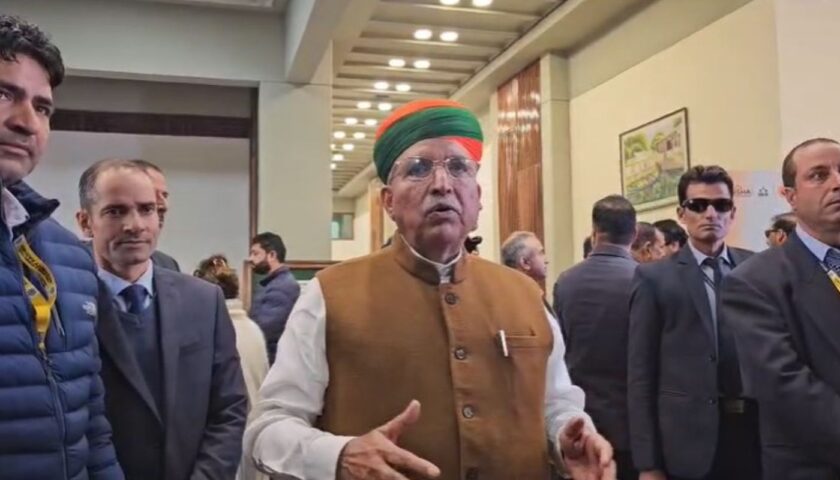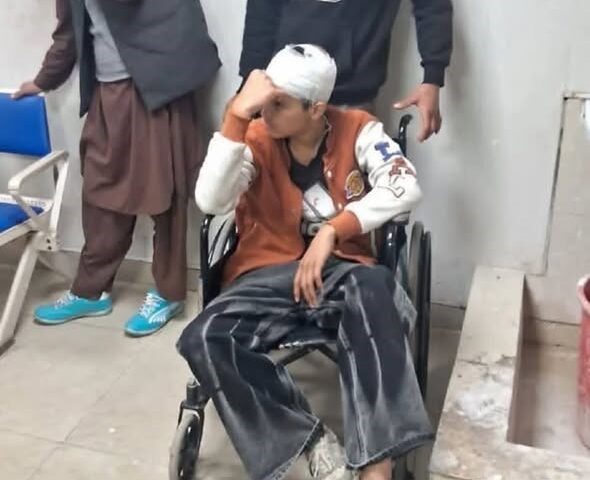A Growing Crisis of Safety for Kashmiri Students
By: Javid Amin
Srinagar 26 April 2025: The recent terror attack in Pahalgam, which shook the Kashmir Valley, has led to a series of disturbing consequences beyond its immediate tragedy. Amid the national shock and grief, a wave of discrimination and harassment has been directed at Kashmiri students across India, casting a shadow over their academic pursuits and well-being.
Incidents of threats, harassment, and even physical assaults have emerged from various states, creating a sense of fear among the students. The incident, which claimed 26 innocent lives in Pahalgam, has also triggered emotional and violent responses against the Kashmiri community outside the Valley.
In this article, we delve into the growing safety concerns for Kashmiri students, the incidents reported from different cities, and the measures being taken to protect them in these challenging times.
The Pahalgam Attack — A Catalyst for National Tensions
Pahalgam Attack: The Spark that Ignited Nationwide Fear
The terrorist attack in Pahalgam, which targeted innocent civilians, not only devastated families but also fueled animosity toward the Kashmiri community. While Kashmir has long been a region embroiled in political conflict, the attack exposed vulnerabilities felt by many, including Kashmiri students studying across India.
Following the attack, the emotional fallout led to an unfortunate rise in misguided hostility. Students who had peacefully integrated into academic life suddenly found themselves facing backlash due to their origins, despite having no involvement in the violence. This sense of fear, discrimination, and victimization has severely impacted their mental and emotional well-being.
Harassment and Violence — Real Stories of Kashmiri Students
Jalandhar Incident: A Disturbing Attack on Identity
One of the first major incidents occurred in Jalandhar, where a Kashmiri student was reportedly assaulted after being confronted by a group of individuals. The students were stopped and asked about their origins. When the student identified as being from Kashmir, he was allegedly beaten by the assailants.
Though local authorities have yet to confirm the exact details of the attack, the J&K Students Association quickly rallied to the student’s defense, calling for immediate action to protect Kashmiri students and ensure their safety. They also demanded a thorough investigation into the incident and justice for the victim.
The assault in Jalandhar serves as a stark reminder of the discrimination faced by Kashmiri students who have long been seeking peace and normalcy but are now being victimized for their roots.
Pune: Rising Threats and Fear Among Students
Pune, another hub for higher education, has become a hotspot for rising incidents of threats against Kashmiri students. Many students reported receiving threats on social media after the Pahalgam attack, with some even receiving direct, aggressive messages urging them to leave the city.
The Sarhad Foundation, a non-profit working for Kashmiri student welfare, raised its concerns with local authorities and appealed for greater protection. In response, the Pune Police began intensifying security measures, such as patrolling areas with large Kashmiri student populations and encouraging students to report any suspicious activities immediately.
Despite these efforts, some students have felt compelled to leave the city altogether, fearing for their safety. Their decision to return home highlights the deep psychological and emotional scars that these young minds are bearing due to rising hostility.
Uttar Pradesh: A Statewide Response to Protect Kashmiri Students
In Uttar Pradesh, authorities have acted swiftly to ensure the safety of Kashmiri students in the wake of growing threats and harassment. The Director General of Police (DGP) issued clear directives to local law enforcement to increase security in areas with significant Kashmiri student populations.
Key measures include:
-
Enhanced police vigilance in residential areas housing Kashmiri students
-
Verification of Kashmiri students by local police to ensure their identities are secure
-
Increased surveillance of public spaces, particularly areas frequented by students, to prevent the occurrence of violent incidents
-
Monitoring of social media platforms to identify and remove inflammatory content
The DGP also called for a unified approach, urging local police to work with student organizations to address grievances, prevent misunderstandings, and restore confidence in the system. This proactive response from Uttar Pradesh’s law enforcement offers hope that the security of Kashmiri students can be safeguarded against further threats.
National Responses — A Call for Unity and Protection
Political and Community Support for Kashmiri Students
The Kashmiri student crisis has drawn widespread attention from political leaders, student organizations, and communities across India. In response to the growing tension, many leaders have urged unity and responsible reporting.
-
Political Leaders Respond: Prominent political figures from various states have raised their voices, calling for action to ensure the safety of Kashmiri students and to end discrimination. Several members of the Parliament have questioned the national government’s role in preventing such incidents and urged law enforcement agencies to act swiftly.
-
Student Organizations Rally: Student bodies such as the National Students Union of India (NSUI) and Akhil Bharatiya Vidyarthi Parishad (ABVP) have organized peace marches, student support forums, and awareness campaigns aimed at providing a platform for Kashmiri students to voice their concerns.
-
Community Support: Across India, social media has been flooded with messages of solidarity from ordinary citizens expressing support for Kashmiri students, and calling for the normalization of relations based on mutual respect.
The Role of Universities and Educational Institutions
University administrations across India have been urged to take proactive measures to protect the well-being of Kashmiri students. Several universities have:
-
Initiated anti-discrimination campaigns to educate students about tolerance and respect
-
Set up hotlines and counseling services to help students deal with emotional distress
-
Organized awareness programs to spread facts about Kashmir and combat misconceptions that have fueled the animosity
These efforts are being widely appreciated and have helped some students feel less isolated in their campuses. However, it’s clear that coordinated action is still required to address these challenges on a national level.
Bottom-Line — A National Call to Protect Kashmiri Students and Restore Peace
The rise in harassment and violence against Kashmiri students is a disturbing chapter in the aftermath of the Pahalgam attack. However, the resilience shown by these students, along with support from local communities and national leaders, provides hope that things can improve.
The growing tide of solidarity, the increased security measures, and the active political and social engagement are all signs that Kashmir’s future generations — whether in the Valley or studying elsewhere in India — should not face the burden of collective blame.
What Needs to Be Done:
-
Coordinated government action at both state and national levels to ensure security
-
Community-driven initiatives to foster understanding and peace
-
Continued awareness campaigns to dismantle the prejudices that harm Kashmiri students
Now is the time for India to rise above fear and embrace unity. It is essential for every student, regardless of their origin, to feel safe, respected, and welcome. The situation demands not only practical measures but also collective responsibility — so that Kashmiri students can continue their education without fear and help pave the way for a more harmonious future.




